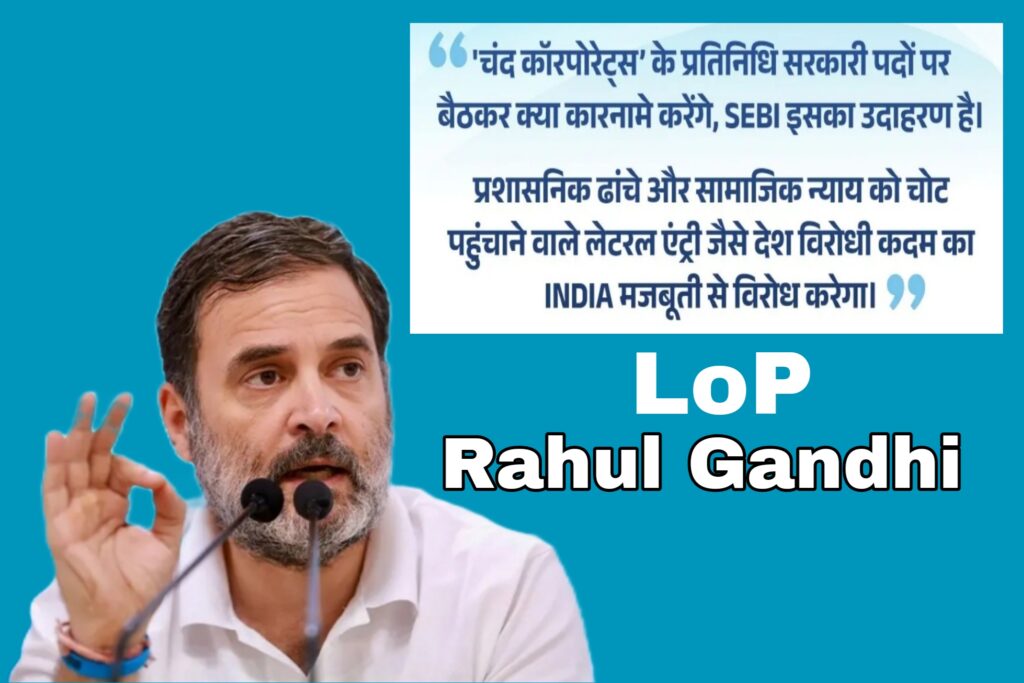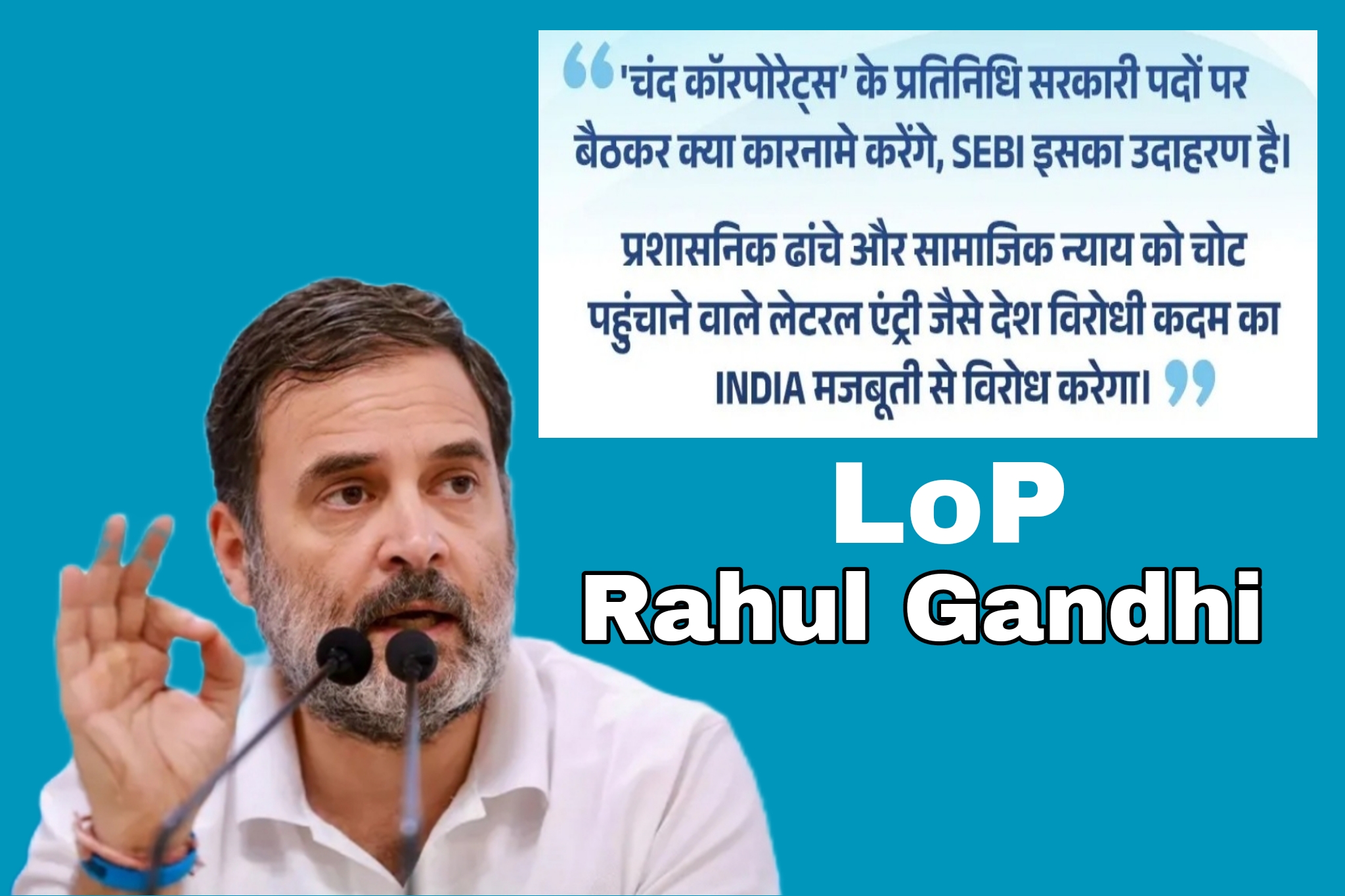
In recent years, the Securities and Exchange Board of India (SEBI) has often been cited as a textbook example of how the intertwining of corporate interests and government can erode public trust and damage the very foundations of democracy. SEBI, as India’s market regulator, holds a crucial role in ensuring that the capital markets function transparently and fairly. However, instances of perceived corporate influence over regulatory decisions have raised alarming questions about the integrity of such institutions when they are led by individuals with deep ties to the corporate world.
SEBI and the Corporate-Government Nexus
The role of SEBI is to safeguard the interests of investors and ensure the smooth functioning of the market. It is meant to be an autonomous body, free from external influences, particularly those from the corporate sector. However, when individuals who have long served in corporate roles are appointed to key regulatory positions, there is an inevitable risk that their decisions may be swayed by their previous affiliations. This is not to suggest that all such individuals are inherently corrupt, but the potential for conflict of interest is undeniable.
A significant concern arises when former corporate executives transition into government positions without a sufficient cooling-off period. This lateral entry into government service, especially in regulatory bodies like SEBI, can create situations where policies are subtly tilted in favor of big businesses, often at the expense of smaller players and the public interest. The revolving door between corporate boardrooms and regulatory agencies undermines the public’s trust in these institutions and leads to a perception that they are more beholden to corporate interests than to the common good.
The Dangers of Lateral Entry
The idea of lateral entry, where professionals from the private sector are brought into government positions, was initially conceived to bring in fresh perspectives and expertise into the bureaucratic machinery. In theory, it sounds like an innovative approach to governance. However, in practice, it can lead to the dilution of the civil service’s neutrality and commitment to public welfare. The introduction of lateral entrants who may carry the baggage of corporate interests risks creating an administrative environment where policies are crafted to benefit the few at the expense of the many.
The civil services in India have traditionally been the backbone of the country’s administrative structure, designed to serve the public impartially and uphold social justice. The concept of lateral entry, however, challenges this traditional role by introducing elements that may not always align with these values. When individuals from the corporate sector are placed in positions of power within the government, there is a real danger that decisions will be driven by profit motives rather than public welfare.
The Impact on Social Justice
One of the most significant threats posed by the influx of corporate representatives into government roles is the potential erosion of social justice. India’s administrative framework is built on the principles of equality and fairness, striving to uplift the marginalized and ensure that the benefits of development reach all sections of society. However, when policy decisions are influenced by individuals with a corporate mindset, there is a risk that these foundational principles will be compromised.
For instance, policies that prioritize deregulation, privatization, and liberalization—hallmarks of a corporate-driven agenda—can exacerbate existing inequalities. These policies often benefit large corporations and wealthy individuals while leaving behind small businesses, farmers, and the economically disadvantaged. The emphasis on profit maximization can also lead to the neglect of essential social services, such as healthcare and education, further deepening the divide between the rich and the poor.
The Need for Strong Opposition to Lateral Entry
India must resist any attempts to weaken its administrative structure through the unchecked introduction of lateral entrants with corporate backgrounds. While the idea of bringing in fresh talent from the private sector is not inherently flawed, it must be approached with caution. The government must ensure that those appointed to key regulatory positions come from all sections of society (i.e. all reservation rules must be followed) and have a clear commitment to public service and are free from any conflict of interest.
Moreover, the civil services must be protected as the cornerstone of India’s administrative system. Recruitment and promotions of civil servants should be based on their merit, representation of all sections of society and commitment to public welfare, rather than on their ability to navigate corporate boardrooms. This is essential to maintaining the integrity of the administrative structure and ensuring that it continues to serve the interests of the entire population, rather than a privileged few.
India’s strength lies in its diversity and its commitment to social justice. The administrative system, which has been built over decades, is a reflection of these values. Any attempts to dilute its effectiveness through policies like lateral entry, which may introduce corporate biases into governance, must be met with strong resistance. The government must prioritize the welfare of the people over the interests of corporations and ensure that its regulatory bodies, like SEBI, remain true to their purpose of serving the public interest.
Upholding Democratic Values
As India continues to grow and evolve, it is imperative that its democratic institutions remain robust and free from undue influence. The intertwining of corporate interests with government regulation poses a significant threat to this ideal. SEBI, and other regulatory bodies, must remain vigilant against the encroachment of corporate power and ensure that their decisions reflect the broader public good.
The concept of lateral entry should not be dismissed outright, but it must be implemented with strict safeguards to prevent conflicts of interest. The civil services must be protected and strengthened, not undermined, to ensure that India’s administrative machinery continues to uphold the principles of social justice and equality. The government must be transparent and accountable, prioritizing the needs of the many over the desires of the few.
In this critical moment, it is up to the people of India to demand that their leaders resist the temptation to prioritize corporate interests over public welfare. By doing so, they will ensure that the country remains on a path of inclusive growth, where the benefits of development are shared by all, not just the privileged few.

